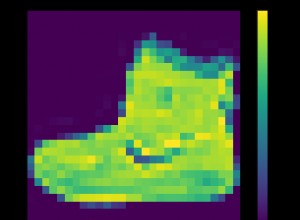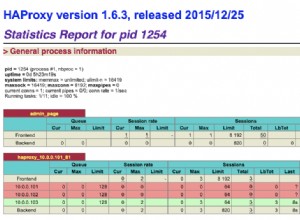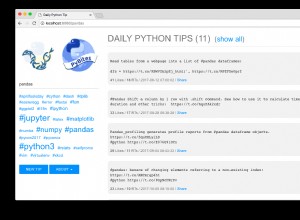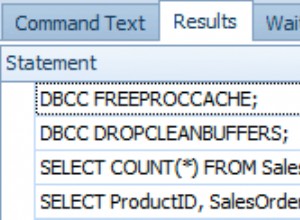prova
CREATE TABLE [dbo].[Names]
(
[Name] [nvarchar](64) NOT NULL,
[CreateTS] [smalldatetime] NOT NULL CONSTRAINT CreateTS_DF DEFAULT CURRENT_TIMESTAMP,
[UpdateTS] [smalldatetime] NOT NULL
)
PSI pensa che un smalldatetime sia abbastanza buono. Puoi decidere diversamente.
Non puoi farlo nel "momento dell'impatto"?
In SQL Server, questo è comune:
Update dbo.MyTable
Set
ColA = @SomeValue ,
UpdateDS = CURRENT_TIMESTAMP
Where...........
Sql Server ha un tipo di dati "timestamp".
Ma potrebbe non essere quello che pensi.
Ecco un riferimento:
https://msdn.microsoft.com/en-us/library/ms182776(v=sql.90).aspx
Ecco un piccolo esempio di RowVersion (sinonimo di timestamp):
CREATE TABLE [dbo].[Names]
(
[Name] [nvarchar](64) NOT NULL,
RowVers rowversion ,
[CreateTS] [datetime] NOT NULL CONSTRAINT CreateTS_DF DEFAULT CURRENT_TIMESTAMP,
[UpdateTS] [datetime] NOT NULL
)
INSERT INTO dbo.Names (Name,UpdateTS)
select 'John' , CURRENT_TIMESTAMP
UNION ALL select 'Mary' , CURRENT_TIMESTAMP
UNION ALL select 'Paul' , CURRENT_TIMESTAMP
select * , ConvertedRowVers = CONVERT(bigint,RowVers) from [dbo].[Names]
Update dbo.Names Set Name = Name
select * , ConvertedRowVers = CONVERT(bigint,RowVers) from [dbo].[Names]
Forse un esempio funzionante completo:
DROP TABLE [dbo].[Names]
GO
CREATE TABLE [dbo].[Names]
(
[Name] [nvarchar](64) NOT NULL,
RowVers rowversion ,
[CreateTS] [datetime] NOT NULL CONSTRAINT CreateTS_DF DEFAULT CURRENT_TIMESTAMP,
[UpdateTS] [datetime] NOT NULL
)
GO
CREATE TRIGGER dbo.trgKeepUpdateDateInSync_ByeByeBye ON dbo.Names
AFTER INSERT, UPDATE
AS
BEGIN
Update dbo.Names Set UpdateTS = CURRENT_TIMESTAMP from dbo.Names myAlias , inserted triggerInsertedTable where
triggerInsertedTable.Name = myAlias.Name
END
GO
INSERT INTO dbo.Names (Name,UpdateTS)
select 'John' , CURRENT_TIMESTAMP
UNION ALL select 'Mary' , CURRENT_TIMESTAMP
UNION ALL select 'Paul' , CURRENT_TIMESTAMP
select * , ConvertedRowVers = CONVERT(bigint,RowVers) from [dbo].[Names]
Update dbo.Names Set Name = Name , UpdateTS = '03/03/2003' /* notice that even though I set it to 2003, the trigger takes over */
select * , ConvertedRowVers = CONVERT(bigint,RowVers) from [dbo].[Names]
La corrispondenza sul valore "Nome" probabilmente non è saggia.
Prova questo esempio più tradizionale con una SurrogateKey
DROP TABLE [dbo].[Names]
GO
CREATE TABLE [dbo].[Names]
(
SurrogateKey int not null Primary Key Identity (1001,1),
[Name] [nvarchar](64) NOT NULL,
RowVers rowversion ,
[CreateTS] [datetime] NOT NULL CONSTRAINT CreateTS_DF DEFAULT CURRENT_TIMESTAMP,
[UpdateTS] [datetime] NOT NULL
)
GO
CREATE TRIGGER dbo.trgKeepUpdateDateInSync_ByeByeBye ON dbo.Names
AFTER UPDATE
AS
BEGIN
UPDATE dbo.Names
SET UpdateTS = CURRENT_TIMESTAMP
From dbo.Names myAlias
WHERE exists ( select null from inserted triggerInsertedTable where myAlias.SurrogateKey = triggerInsertedTable.SurrogateKey)
END
GO
INSERT INTO dbo.Names (Name,UpdateTS)
select 'John' , CURRENT_TIMESTAMP
UNION ALL select 'Mary' , CURRENT_TIMESTAMP
UNION ALL select 'Paul' , CURRENT_TIMESTAMP
select * , ConvertedRowVers = CONVERT(bigint,RowVers) from [dbo].[Names]
Update dbo.Names Set Name = Name , UpdateTS = '03/03/2003' /* notice that even though I set it to 2003, the trigger takes over */
select * , ConvertedRowVers = CONVERT(bigint,RowVers) from [dbo].[Names]




